Reporters I’ve spoken to are saying the Miramax farewell-to-the-past, hello-to-the- future party last Saturday at the Pacific Design Center was some kind of downbeat, desultory affair. It was fine — a spirited, informal, family-type thing. A spunky, slimmed-down Harvey Weinstein said the new company that he and his brother Bob will be launching sometime next fall (after the Disney contract comes to a close in September) will “kick up a lot of dust.” Looking forward….
Month: February 2005
Sorry, Bud
You never cared about this stuff, and you really couldn’t care less from wherever you might be now, but I’m profoundly pissed about the Oscar producers not giving you a special tribute reel of your own last night. Pissed and ashamed and a little bit disgusted.
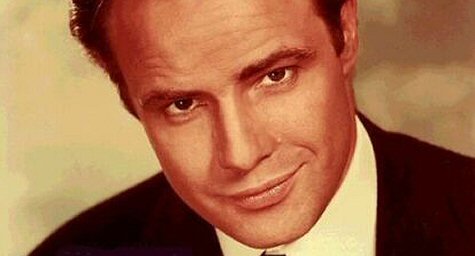
Marlon Brando
There’s no question you were the most influential actor of the 20th Century. No one had the same impact-grenade effect…nobody. You’ve been among the deity of reigning pop icons for as long as I can remember (along with Humphrey Bogart, Elvis Presley, James Dean, Marilyn Monroe, et. al.), and you’ll still be there 50 years from now. You rewrote the damn book.
But you were a bad (indifferent?) politician and a bit of a self-loather, and you let your unresolved screwed-up stuff define too much of your life and image over the last 45 or 50 years, and Johnny Carson, whose departure happened just recently, was better liked by the industry and public, and he was a sublime Oscar host all those years.
And so Oscar show producers Gil Cates and Lou Horvitz took the politically easy road and revealed their personal colors, not to mention the industry’s basic value system, in their decision to pay a special extended tribute to Carson and not you.
Cates and Horvitz lumped the great Marlon Brando in with all the other dear and departed during last night’s “In Memoriam” tribute…all right, they gave you the last slot at the end of the montage and used four stills instead of one or two…but it was like someone saying matter-of-factly, minus any sense of sufficient sadness or reverence, Marlon Brando is merely dead.
The Brando tribute reel that Cates and Horvitz didn’t show (and probably never even cut together) should have proclaimed — trumpeted — that Marlon Brando lived.
He lived and screamed and wept and re-ordered the universe as people knew it in 1947 in New York City, and then rocked Hollywood in the early to mid ’50s, and left them both in a state of permanent shakedown and reexamination by the time of his effective departure from creative myth-making in 1954 or ’55….and then shook things up again when he briefly re-emerged as The Man in the early ’70s.
And all the Academy could muster was a more-or-less rote acknowledgement that he left the room in 2004.
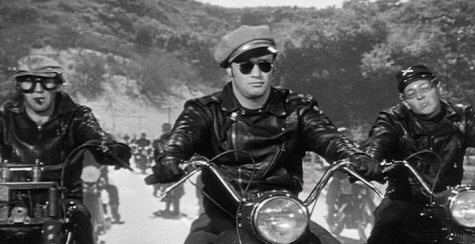
In Joseph L. Mankiewicz‘s Cleopatra (1963), a Roman officer quietly informs Roddy McDowall‘s Caesar Augustus that Marc Antony (i.e., Richard Burton) is dead.
“Is that how one says it?,” McDowell replies. “As simply as that? Marc Antony is dead…Lord Antony is dead. The soup is hot, the soup is cold. Antony is living, Antony is dead.
“Shake with terror when such words pass your lips for fear they be untrue, and agony cut out your tongue for the lie! And if true, for your lifetime boast that you were honored to speak his name even in death. The dying of such a man must be shouted, screamed…it must echo back from the corners of the universe. Antony is dead! Marc Antony of Rome lives no more!”
That Aside…
Hooray for Million Dollar Baby, Clint Eastwood, Hilary Swank, Jamie Foxx, Morgan Freeman, Spotless Mind inventor-screenwriter Charlie Kaufman…and the great Virginia Madsen, her loss notwithstanding.
Everyone was absorbing this last night, but let’s say it anyway: it was a vaguely boring, way-too-predictable show.
I didn’t hate it, didn’t love it…I just watched it, amazed at how precisely it all went according to plan. No surprises meant anything except the Best Song going to that beautiful tune from The Motorcycle Diaries, and yes, of course, the producers should have let the Argentinean composer perform it instead of Antonio Banderas and Carlos Santana.
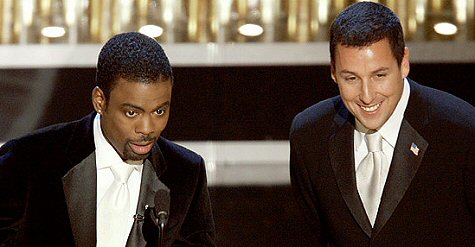
Oscar host Chris Rock, award presenter Adam Sandler during last night’s telecast.
Chris Rock’s best bit was his interviewing-the-moviegoers routine on tape from L.A.’s Magic Johnson theatre….especially Albert Brooks saying emphatically that White Chicks was the best film of the year.
But otherwise…I don’t know, the fireworks didn’t exactly go off. Rock aimed most of his stuff at the African-American viewing audience first, and the Academy crowd second. Somebody wrote this morning they should go back to Steve Martin and sign him up for five years. They should.
Those clips of Johnny Carson letting go with three or four zingers on those ’80s Oscar telecasts reminded me how sublime it can be when a host really knows the industry political stuff and how to tweak the pomp and proceedings just so.
As the show unfolded I heard these words in my head: “It’s tired…it’s fading…it’s not electric or essential…the only thing working for it is the familiarity.”
The best thing on the whole show was the CG-ed Pepsi commercial early in the show that used the “I’m Spartacus!” scene from Spartacus. Brilliantly cut and exquisitely CG’ed, and that final edit in which it appeared that the tear rolling down Kirk Douglas’s cheek was over the Roman officer drinking the Pepsi instead of Douglas….perfect. I’d like to think Stanley Kubrick enjoyed this from wherever he is. He would have respected the wit and the craft.
I understood Sean Penn jumping to the defense of Jude Law after Rock joked about his being in so many films last year, etc., but why did Rock even go with that gag in the first place? Everyone (including Law himself) was joking about his five or six movies in a row last fall. Comedy is all about timing, right?
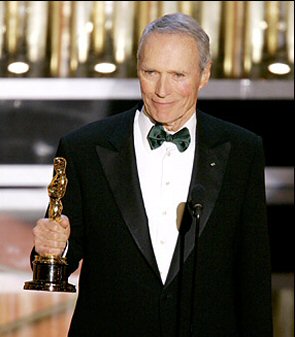
Clint Eastwood, director-producer of Million Dolar Baby and winner of the Best Director Oscar.
Congrats to the winners of the Best Documentary Feature Oscar, Zana Briski and Ross Kauffman, for Born Into Brothels…but wasn’t this award mainly about the compassion and activism that Briski showed for those Indian kids who showed promise as photographers, and secondly for the film itself?
It’s really too bad that Clint Eastwood’s Million Dollar Baby score didn’t get nominated — his simple and elegant music in that awesome film got me more than any other composition this year. The second most impressive score of the year was James Newton Howard’s for Collateral, which wasn’t nominated.
Dion Beebe and Paul Cameron’s cinematography for Collateral was legendary from the time that Michael Mann film began to be screened late last summer. People who love film and urban noir imagery will be talking about their photography for decades to come.
No disrespect to Bob Richardson, the winner of the Best Cinematography Oscar for his work on The Aviator, but what he did wasn’t drop-your-socks awesome. It was just good professional craftsmanship.
Morgan Freeman’s Million Dollar Baby performance was Bhagavad Gita-like in its centered-ness, but I still wish Sideways‘ Thomas Haden Church had won for Best Supporting Actor. I’m glad he got the IFP Spirit Award on Saturday, and I was touched by how much he was touched.
And hooray for Sideways creators Alexander Payne and Jim Taylor winning the Best Adapted Screenplay Oscar. It couldn’t have happened to a cooler couple of guys.

Sideways director, co-screenwriter Alexander Payne (l.), and co-writer Jim Taylor at Saturday’s IFP Spirit Awards, in the press tent after winning their Best Screenplay award.
Really Big Change
Somewhere down the road, movies will probably open simultaneously in both theatres and on rental-only DVDs. Or maybe through some kind of broadband download service. And I’m not just talking across the U.S. but worldwide.
Maybe not all the movies at first, but some and then eventually more. Mostly on the part of the big distributors, and especially when it comes to the big dumb CG flicks.
This day-and-date idea has been kicked around for years, and now I’m hearing it again. I don’t like it much. It would certainly devalue and demythologize the ritual of going out to a new film on a Friday night, but I can see it happening.
Once this starts picking up steam you’ll hear a lot of squawking and a lot of (older) people exclaiming “no way!” and “are they insane?”…but just wait.
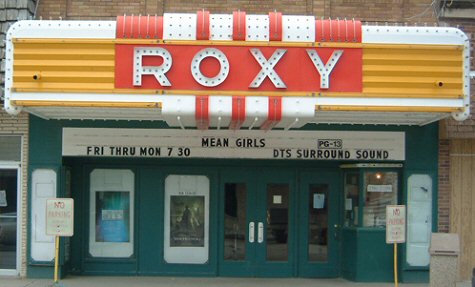
The cold, brutal fact is that the old romance of going out to the Bijou and sharing a big-screen experience with other moviegoers has been gradually diminishing among the hoi polloi for a long while.
Theatrical attendance continues to drop year after year, new ways of offering and seeing movies through new technologies are going to continue, the world is getting smaller and new distribution strategies are inevitable.
I’m not saying that people like me or the readers of this column are disconnecting from the communal thing, but people seem to be vegging out more and more, and DVDs being a bigger business these days than theatrical supports this.
Once the DVD/theatrical day-and-date strategy catches on, DVDs will be like CDs, and films playing in theatres will serve the same promotional function as bands going on tour and playing clubs and stadiums…revenue generators, for sure, and obviously offering a much more intense and exciting way of experiencing a film, but mainly serving as market-boosters for DVD sales.
Remove the day-and-date scenario, some say, and this is pretty much the case right now.
“Movies have become giant advertisements for their own DVD,” says screenwriter Scott Frank (The Interpreter, Get Shorty). “Just a few years ago DVDs and foreign business were considered ancillary,” Pollock adds. “Now they’re where most of the money is coming from, and [domestic] theatrical is ancillary.”
Think of all those couch potatoes and senior citizens (like my parents, who go out to movies maybe three or four times a year, if that) who would suddenly be part of the opening-weekend community if this idea were to happen.

The big motive for going day-and-date is that distributors would be able to slash marketing costs. They spend $30 to $40 million to open some movies theatrically (and even more for certain tent-polers), and, I’m hearing, some fairly hefty amounts to promote the DVD release of some of the bigger films (like Spider-Man 2 or Ray), so combining the two campaigns would be an obvious cost-cutter.
Variety home video editor Scott Hettrick, also the editor in chief of DVD Exclusive, says marketing budgets for DVDs can run between $1 to $5 million. But I’ve heard elsewhere that marketing budgets for super-titles, either hard cash investments or some sort of trade-barter arrangements, are much larger. The video industry is fairly secretive about the particulars.
Day-and-date releasing would also, I would think, cut heavily into video piracy revenues, especially if new films get released on DVD worldwide.
The Motion Picture Association of America has estimated for the last two years that mainstream Hollywood loses $3.5 billion in overseas revenue every year due to piracy. This figure is an estimate of the money made from the sale of bootleg DVD’s and VCD’s (i.e., video compact discs), which are available mainly in Asia.
It’s reasonable to guesstimate that out-maneuvering the pirates day-and-date with higher quality DVDs of brand-new films would result in an extra billion or two each year in revenue. Or would Asian consumers used to watching crappy-looking bootlegs not care all that much?
(According to a recent New York Times story by Ross Johnson, a reliable estimate of the 2004 revenues Hollywood earned from the sale of legitimate DVDs, as tabulated by Screen Digest, a British data company, is $11.4 billion. This is wholesale revenue drawn from an overall figure of $24.6 billion “that overseas consumers spent buying and renting home video products in 2004,” Johnson reported.)
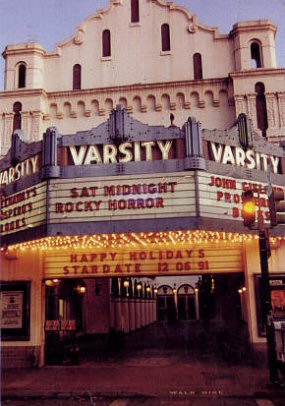
The day-and-date rental income could be huge. As tickets in the big cities these days are $10, video store rentals for just-opened films could probably also be $10.
Video stores could even give vouchers to people renting brand-new movies and credit them with a $10 discount when and if they purchase the DVD after, say, a three-month window.
Imagine the Variety headlines about opening-weekend video-store rental numbers on top of the usual theatrical earnings…imagine $100 million dollar opening weekends for certain big titles, or higher. I’m just spitballing, but it sounds plausible.
And with a massive worldwide DVD and theatrical break, studios could probably make out better with big-budget duds like Catwoman or Alexander than under the current system, since the word-of-mouth factor would obviously count for a bit less.
And of course, not every film would necessarily be released this way. The kind of movies that would benefit from a gradual theatrical break by relying on word-of-mouth could stick to that. But theoretically, day-and-date could be a boon to the big CG movies. Especially the lousy ones.
I sound like a vp of sales making a pitch at a board meeting. And for an idea I find repellent. Day-and-date DVD and theatrical will just be one more reason for millions to stay indoors and stay clear of the hurly burly.
The idea of distributors deliberately destroying the wonder and mystique of going out to a new movie with a big crowd and enjoying the experience en masse sounds pretty close to appalling.

Okay, so theatrical releases have primarily become promotions for DVD releases…fine. But isn’t the main reason people pay millions to rent or buy DVDs because their appetite has been whetted by all the theatrical release hoopla a few months earlier — reviews, ads, word-of-mouth, etc.?
Some guys are telling me naaah, won’t happen, forget it…the studios will never cannibalize their theatrical market and kill the golden goose.
But all those plusses — reduced marketing costs, cutting into the piracy dollar, massive worldwide burn-throughs in a weekend or two, lousy movies cleaning up bigger without word-of-mouth screwing things up — probably sound enticing to bottom-line types.
The combined advertising and distribution costs in pulling off a worldwide DVD and theatrical release would, I’m assuming, be astronomical.
The last time a big studio tried to grab opening-weekend revenues from the home video market was 22 or 23 years ago when Universal offered The Pirates of Penzance on a nationwide pay-per-view basis, concurrent with the theatrical opening. The fact that no big studio has tried this since (unless I’m forgetting something) indicates something, I think.
And yet a week or two ago on Peter Bart and Peter Guber’s AMC talk show “Sunday Morning Shoot-out,” Sony honcho Michael Lynton was talking with some enthusiasm about a hypothetical super-tentpole title (Star Wars, Episode 3: Revenge of the Sith, let’s say) as a one-time pay-per-view opportunity. He speculated that such a venture could bring in the vicinity of $100 million in a single evening .
An agent told me yesterday that Mark Cuban and Todd Wagner, the guys behind 2929 Entertainment, an outfit that includes HDNet Films and Magnolia Pictures and is all about creating new pipelines and delivery systems, have been talking about releasing films simultaneously on DVD and theatrical.
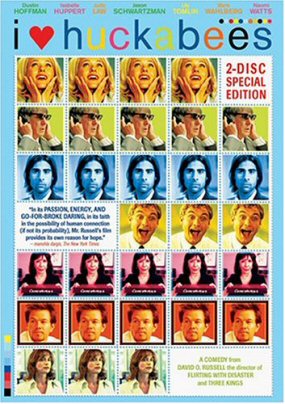
I tried to speak to Cuban (or at least trade e-mails) about this yesterday through his publicist, but nothing happened.
Jeff Arnold, the founder of WebMD and head of a technical venture called The Convex Group, tried a new-fangled way last November of distributing that gauzy-looking Chaz Palmintieri film called Noel. Arnold called it a “trimultaneous” release strategy.
After opening in a limited number of theaters in mid November, Noel was sold on a “Mission Impossible” disposable DVD (unwatchable after 48 hours) for $4.99. Then it had a one-night-only airing on TNT on the Sunday after Thanksgiving. The only problem, in the view of a colleague, is that “nobody gave a shit.”
Any way you slice it, the DVD audience is getting bigger and bigger, the number of theatre admissions is declining every year (the increased earnings are due to higher ticket prices), and sooner or later we’ll be in a different world and the old communal way of seeing movies will become less and less a part of the way people live and entertain themselves.
I don’t like it, but I don’t see how to stop it. It’s the way things are going. Am I wrong?
Spirit
The Sideways sweep at Saturday’s IFP Spirit Awards — Best Feature, Best Director (Alexander Payne), Best Screenplay (Payne and Jim Taylor), Best Actor (Paul Giamatti), Best Supporting Actor (Thomas Haden Church) and Best Supporting Actress (Virginia Madsen) — was richly deserved. I mean, I would have voted that way.
I spoke to some journalists at the after-party who felt there was something a little too rote about Sideways winning everything, but naaah…it’s a great film.

Sideways costar and winner of the IFP Spirit Award for Best Supporting Actor Thomas Haden Church
I was especially pleased about Giamatti winning for Best Actor, after not even being nominated by the Academy. If only Miles hadn’t stolen that money out of his mother’s bedroom bureau drawer…who knows?
And it was touching, naturally, watching Haden Church get more than a little choked up at the podium and trying to keep his composure. I’ve loved every beat of his performance from the first time I saw it — he gave the most accurate and lived-in portrayal of a confirmed hound in the history of movies.
Eight or nine cheers to Maria Full of Grace‘s Catalina Sandino Moreno for her Best Actress win, and to Maria‘s writer-director Joshua Marston for winning the Best First Screenplay award.

Sideways costar and winner of the Best Supporting Actress Spirit Award Virginia Maden (r.) with her son, who told me in the press room that he has the same kind of digital camera.

Maria Full of Grace star and winner of the Best Actress Spirit Award Catalina Sandino Moreno.
Extremely hearty congratulations to Joe Berlinger and Bruce Sinofsky for winning Best Documentary award for Metallica: Some Kind of Monster…which the Academy didn’t even pre-qualify, much less nominate.
And I laughed at the bathroom joke that Garden State writer-director-star Zach Braff, honored for having made the Best First Feature, told in the press room. Q: Why did Piglet look in the toilet? A: He was looking for Pooh.

Three of the winners of the IFP Spirit Best First Feature award for Garden State in the press room: producer Pamela Abdy, star-writer-director Zach Braff, and producer Dan Halstead.
Pepsi Kubrick
“Jeffrey, sometimes you make no sense. That Spartacus Pepsi ad was another horrific hit on film, reducing powerful emotional scenes to branding madness.
“If you want a generation of filmgoers to equate classic movie moments with this soulless advertising, don’t complain as product placement reaches new awful levels.
“No, Kubrick would not be proud. Reducing a slave rebellion to a choice of Pepsi is the opposite of film art.” — Christian Divine.
Wells to Devine: It may be the opposite of film art, but it was very clever and a superbly rendered act of artistic defacement.
Affleck
“Ben Affleck is nowhere near as bad as many complain. I think he’s just become one of the targets of choice. I mean, how dare he win an Oscar so young, make lots of money, boink beautiful babes, and get to be a movie star/presence…gosh, he must be some kind of dickwad.
“Sure, he’s made some dogs — but so has Robert deNiro…and while Bobby D is a convincing screen presence…he’s not that different from one character to the next. Much like Affleck. But for whatever reason, DeNiro gets a pass and Affleck gets the bitchslap.
“In short…cut Affleck some slack. Even if he doesn’t do much else in his life, he co-wrote Good Will Hunting, which was a damn fine film. Most of Affleck’s critics could never create something as moving. ” — Roy “Griff” Griffis.
“Shouldn’t you probably hold off pronouncing ‘the return of Ben Affleck’ until after Truth, Justice and the American Way is actually made and shown?
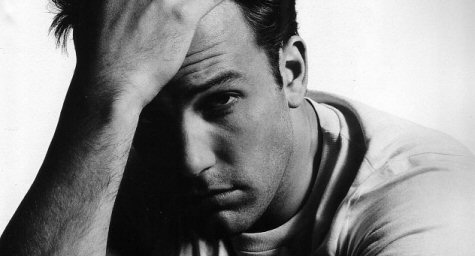
No one knows as yet how he will do. He could very well tank, you know. Just because he is getting a smaller paycheck (although $500,000 is nothing to sneeze up) compared to his last one does not mean he will suddenly become a critically acclaimed actor or turn in a mind- blowing performance.
“As you wrote yourself, he, like George Reeves, is an ‘amiable, modestly talented actor’ and yes, it is true that Affleck excelled best in playing himself on film.
“Still, one wonders if he can pull this role off. He does not possess the gravitas and while he can sometimes give a decent performance, his problem is his inability to sustain one for the entire length of the film. Which is why his best performances are in films where his role is very small. He is definitely not leading-man material. This has been proven by his string of box office flops.
“Honestly, my concern is that the minute his career shows a little sign of life, he will again be shoved down our throats a la Bennifer style as he is such a tabloid magnet. He seems to like the spotlight too much, even after the Bennifer fiasco. Otherwise, why show up at Boston Red Sox games with latest girlfriend in tow?
“For this reason alone, I wish he would just disappear or change career and go become an insurance salesman or something. Anything so that we do not have to see him on TV or the newstands again. We so do not deserve another round of that.
“And if only he could take J. Lo with him. This one is 100 times worse. It is a multi-front attack! How many bad films and bad albums and bad clothing lines do untalented multihyphenated stars have to do before they sink out of sight?” — Fearful Quebecer.
“I have no particular interest in either keeping Ben Affleck a movie star or packing him off to the place where Michael Sarrazin and Craig Wasson went after seeming to be names, but I’m kind of appalled at the lazy attitudes displayed toward his career by the Hollywood insiders you quote.
“If Affleck ever had something, then can’t these supersmart and savvy folks imagine that one good script would give it to him again? And if he didn’t ever have it, what the hell were they doing writing him $12 million checks?
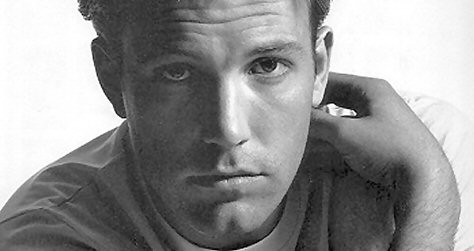
“Is Quentin Tarantino the only guy in the whole city capable of looking at John Travolta and Bruce Willis and imagining great parts for them instead of having Staying Alive and Hudson Hawk brand them for life? (He, rather than their agents, should be collecting 10% of every job they’ve had since.)
“The herd mentality on display in your piece is everything that’s wrong with Hollywood. I kind of do hope Affleck turns it around now, just so he can stick the same geniuses for another $12 million when he’s hot again. ” — Mike Gebert.
“You ran a line about Ben Affleck `being adaptable enough to take only $500,000 upfront for playing George Reeves, the amiable TV actor who shot himself over career problems in 1959, in Focus Features’ Truth, Justice and the American Way.'”
“Only” $500,000? Only in Hollywood. Foreign films rarely pay their stars anything like even that “modest” sum. If this one doesn’t arouse a pile of mail, I’ll be both surprised and very disappointed.
“I keep thinking of him as `Been Affected,’ although my old English profs would probably have preferred `Affectless.’
“If you recall, George Reeves played Waylon (Malon?) Stark, a soldier who’d had a previous affair with Karen Holmes, the Deborah Kerr character, and tried to sum up her sexual allure to Burt Lancaster in a key scene that oozed sleaze and showed a side to Reeves’ acting talents that his subsequent work never capitalized on.” — Richard Szathmary.
Mimic
“A thought about your criticism of actors performing imitations rather than originals (i.e., Jamie Foxx doing Ray Charles and Cate Blanchett doing Hepburn.)
“This is a common criticism of actors, and yet I would submit that this criticism is merely a recent fad among middle-to-highbrow American media types. Not only do the overwhelming majority of quote-unquote ‘ordinary people’ find imitations perhaps the most thrilling and delightful kinds of performances (when the imitations are truly inspired), but Aristotle and Plato each argue that the craft of imitation (‘techkne’) is at the very heart of art-making.
“When actors, writers, and directors are imitating out of pure love for their subjects, with their soul fully inflamed, the best and most primal art is created. Imitation is not some hackish craft best left to Vegas lounge acts. Imitation — even theft, as some artists freely call it — has been responsible for some (if not most) of the greatest art of our, or any, time.
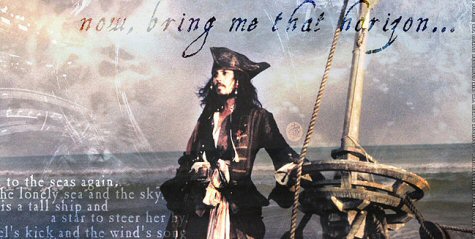
“Johnny Depp admitted happily that his Oscar-nominated (and, more importantly, universally-adored) performance in Pirates of The Caribbean was simply a Keith Richards impression. And it isn’t that Depp brought more to his performance than merely an imitation — Depp simply loves imitating Richards, and he should: he’s brilliant at it, and it makes us all laugh hysterically, even if we don’t know he’s doing Richards, or know who Keith Richards is.
“The crucial currency in the performance — that which is transmitted from artist to audience — is the artist’s love of imitating the subject. ‘Doing’ Richards wasn’t a copout for Depp — it engaged every ounce of his artistry. Interestingly, Depp’s performance was never impugned the way that Foxx’s or Blanchett’s has been, because Depp’s imitation was not overt — it was smuggled in and reappropriated.
“Why is Jim Carrey so much less inspired in his dramatic performances than in his comic ones? Because he has bought into the fallacious myth that he must create an original performance in order to become a real actor. He couldn’t be making a bigger mistake. By stripping the ecstatic mimicry out of his performances — and he is indisputably one of the greatest screen mimics of all time — he has sapped his work of its primal joy. The effect on his work has been stultifying.
“There’s no shame in imitation; far from it. As Godard once said, it’s not where you take things from — it’s where you take them to.” — Josh Shelov , screenwriter of the forthcoming Holligans, starring Elijah Wood.
Good Moves
“I disagree with Stephen Silver about Arthur Penn’s Night Moves being an all-time genuinely depressing movie. (For that, I nominate Bergman’s Cries and Whispers). What was depressing about Night Moves was its lack of recognition.
“It makes, in fact, my list of top American detective movies (in order: The Maltese Falcon, Chinatown, Night Moves, LA Confidential, Harper and The Long Goodbye) and is an outstanding example of top-rate talent (Penn, Gene Hackman, Harris Ulin, James Woods) at work.
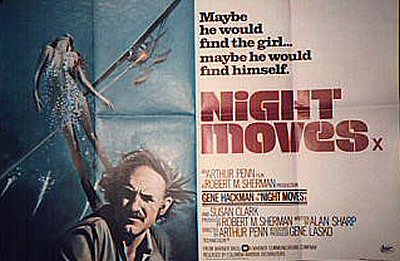
“It has one of my all-time favorite lines. The just-caught-en-flagrante wife Susan Clark turns off the kitchen garbage disposal as it crunches on a glass, saying ‘I can’t hear myself think,’ to which the roiling husband Hackman replies, ‘Aren’t you lucky?’
“It also has a very distinctive use of music — there is a long brilliant sequence of scenes near the start of the movie, as Hackman starts to get into the case, where the music seems to stamp each successive scene as a stanza or as a chorus within a single ongoing composition.
“Finally, it also includes nude or semi-nude scenes with Clark, Jennifer Warren and Melanie Griffith.” — A Night Moves Fan.
Wells to Fan: Not to mention that Hackman line to Clark that watching an Eric Rohmer film is “like watching paint dry.”
Changes
“That was an excellent piece on day-and-date DVD releases, but I don’t think you went far enough. You alluded to new technologies and delivery systems, but I think that’s the whole ballgame.
“The future is in broadband, on-demand delivery and Digital Video Recorders (DVR). And unless something changes in the near future, the studios are about to assure that’s the case.
“As you’re probably aware, a VHS/Beta-type war is brewing over the next generationpf hi-def DVDs. Roughly half the studios (with Sony as the team leader) are supporting Blu-Ray; the other half (led by Warner Bros.) is supporting HD-DVD.
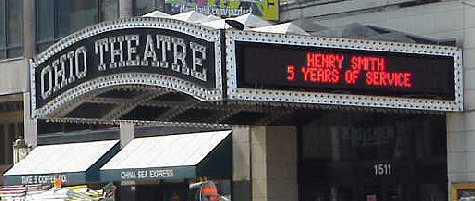
“Most consumers probably won’t make the switch right away, especially since both systems are backwards compatible with current DVDs. But the format war, if it is drawn-out enough, will likely scare off the ‘early adopters.’ This will further delay penetration of the new technology into homes.
“In the meantime, broadband compression technology will improve, and companies like Microsoft and Sony will increase their drive towards developing an all-in-one box that will act as the complete entertainment/information center for the home. We’re almost there now, anyway. Once that technology is set, distributors will be able to offer a much wider variety of on-demand films, most likely in HD.
“And if the computer is integrated with the television, you’ll also be able to download additional content like that found on a DVD. That will all be stored on a DVR for use whenever desired.
“As the I-Pod has vibrantly shown, consumers no longer need to possess intellectual property in media form. They will be perfectly happy to maintain their movie library on a hard drive, especially if those movies are available to view online at any time.
“In my opinion, DVDs have already seen their peak. Within 10 years, they will be as useless as record albums.
“The theater experience is also dying. Last night, I saw a 54” widescreen Sony LCD TV at a warehouse store for less than $2,500.00. That means even now the average consumer can put together a widescreen HD home theater experience, with Dolby Digital surround sound, for less than $3,000.00. And the prices are only going to keep dropping.
“Why pay $10 plus parking to see a movie on someone else’s schedule, in minimal comfort and at the mercy of the movie critics and ninny-nannies sitting around you?

“Besides, the media giants already have a solution for the communal experience you discuss. Microsoft runs an “X-Box Live” site, where you can play multi-player
games simultaneously and audio link via headsets.
“How hard would it be to adapt this technology so that, if you desired, you could join a film chat room with any number of people watching the movie at the same time? And you could set your own level of interraction. Just want to hear general ambient laughter or screams? That’s one setting. Want to be able to comment to the guy next to you? That’s another setting. But you’ll never have to deal with a
screaming baby or a ringing cellphone again.
“And that brings me to another issue beyond the scope of your article. The next generation may not be satisfied with simply passively absorbing a movie. Isn’t the gaming industry already bigger than the movies? Why pay James Caan $2 to 3 million to appear in a Godfather sequel when you can pay him a few thousand to do voiceovers for the Godfather video game?
“People are always going to need a place to go out on the weekends, especially young people, so I doubt the theater experience will ever totally die off. Broadway still thrives, even with all the alternate choices. But the Hollywood model as it exists today, and certainly as it existed 10 to 20 years ago, is already on life support.
“Ask not for whom the bell tolls, Mr. Ebert — it tolls for thee.” — Rich Swank, Orlando, Florida.
Jacksonesque?
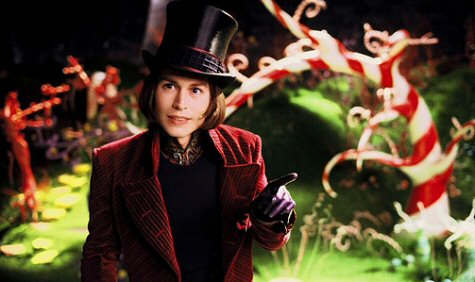
I’m a tiny bit late to the party on this one, but I agree that the beatific expression and that black glove on Depp’s left hand and the cut of his hair and the fairy-tale vibe reminds me of a certain world-class creep who lives in a self-created world north of Santa Barbara. My favorite comment so far, taken from a Movie City News chatboard: “Hunter S. shot himself when he saw Johnny in that pub still.” Director Tim Burton has always operated according to his own muse, but Charlie and the Chocolate Factory (Warner Bros., 7.15) may have something to cope with…maybe.
As Slate critic David Edelstein
As Slate critic David Edelstein claims to have written in his hard-hitting book, When Awards Lie, “Oscars are not about merit blah blah but how the Hollywood establishment blah blah politics blah blah middlebrow blah guilty liberal blah old blah blah Valenti blah no Citizen Kane blah blah no Hitchcock blah blah Gladiator…” Couldn’t have said it better myself.
Hooray for Palm Pictures for
Hooray for Palm Pictures for having convinced the MPAA’s ratings appeals board to roll back on that R rating they gave Gunner Palace a few weeks ago, and give it a PG-13 instead. The R rating was all over language. The doc, produced and directed by Michael Tucker and Petra Epperlein, is about grunts doing the day-to-day in Iraq. The title refers to a bombed-out pleasure palace once owned by Saddam Hussein’s son Uday, but occupied by the “gunners” after the U.S. occupation.
Different Game Ben Affleck’s career
Different Game
Ben Affleck’s career may be on the ropes, but at least he seems to get that…and is doing something about it. Like being adaptable enough to take only $500,000 upfront for playing George Reeves, the amiable TV actor who shot himself over career problems in 1959, in Focus Features’ Truth, Justice and the American Way.
This may sound like a bit of a comedown for a guy who used to pocket $12 million or so per film, and who earned a lot more, reportedly, from a back-end revenue deal his agent cut over Pearl Harbor. But not when you take the long view.

Truth — the story of the 1959 death of George Reeves, the actor who played Superman on TV in the 1950s — is a modestly proportioned, character- driven period film that has a budget of $20 million (or just under), so everyone — including costars Adrien Brody and Diane Lane — is working for less. Allen Coulter, the highly respected Sopranos director, will begin shooting in the summer.
Besides, taking the Reeves role (which is kind of a co-lead — Truth is also about Brody’s character, a shamus, looking into Reeves’ suicide) is apparently part of a new Affleck career strategy of taking less money (which may not be a choice at this stage) and going for sturdier roles.
< ?php include ('/home/hollyw9/public_html/wired'); ?>
Going for roles, in other words, that echo or emulate the most respected, best-reviewed performance of his career — that of the affable smoothie lawyer suffering a spiritual meltdown in Changing Lanes.
That performance worked in part because it seemed to reflect on some level who Affleck really was: a smart, well-connected, good-looking guy cruising through life, but starting to inwardly choke over his own bullshit.
Affleck may be one of the healthiest, least screwed-up guys around in actuality, but the image of the fucked-up, soul-sick yuppie feels right on the screen.

It was also ahead of its time in a sense, as Affleck’s box-office losing streak (Gigli, Jersey Girl, Paycheck, Surviving Christmas) and all the Bennifer tabloid crap…gambling-at-the-Hard-Rock, addictions to this and that, a stumbling-around, banging-into-furniture quality to his public outings…didn’t manifest big-time until Changing Lanes went to video.
Fairly or not, people accepted the idea of a spiritually afflicted Affleck like they bought Jimmy Cagney playing gangsters and Pat O’Brien playing priests.
That’s why, I’m guessing, his forthcoming performance in Mike Binder’s Man About Town will probably work. It’s not an overly dark piece, but it’s not what you’d call “light” either. Affleck will play a Hollywood talent agent whose world starts to fall apart when he learns that his wife Nina (Rebecca Romijn) is fooling around on the side, and that a fang-toothed journalist Barbi Ling (Ling) is out to waste him with a profile piece based on his diary.
Written and directed by Binder (whose previous film, The Upside of Anger, is opening on March 11), Man About Town will probably open next fall.
And that’s why playing Reeves is a good fit. An amiable, modestly talented actor with a winning smile whose Superman success typecast him and ruined any chance of playing roles in feature films….a guy who was going downhill and knew it, and also had a bit of a drinking problem, and was carrying on some kind of affair with the wife of major studio executive at the time…another smoothie in crisis.
All Affleck has to do is gray his hair up and put on some weight (Reeves was a little beefy looking toward the end) and it’ll be like Frank Sinatra playing Pvt. Maggio in From Here to Eternity …a mouthy little guinea playing a mouthy little guinea.
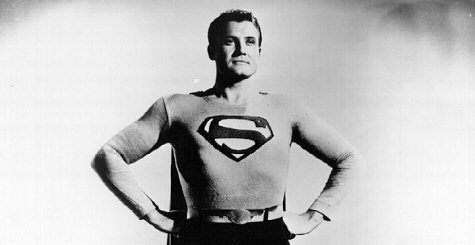
Before starting on Man About Town last fall, Affleck’s last gig was starring in Paycheck, a 2003 John Woo actioner that wound up taking in less in U.S. theatres than its reported $60 million negative cost.
New York Post entertainment writer Lou Lumenick wrote in a story out today (2.23) that Affleck subsequently “dropped out” of two big-budget films at Disney, the sports drama Glory Road, in which he was replaced by Josh Lucas, and the romantic comedy The Ghosts of Girlfriends Past which is being recast.
The reason he didn’t do Glory Road, I’ve been told, is that Disney wouldn’t pay him the $4 million fee his agent wanted.
Affleck was actually mulling over the George Reeves role about two years ago. The film’s original co-director Mark Polish (who left the project with his brother Michael when Miramax balked at casting Kyle MacLachlan as Reeves) told me yesterday he’d met with Matt Damon in late `02 about playing the private detective role, and while he never spoke to Affleck about the Reeves role, Damon may have tipped him about it.
Affleck is “damaged goods, there’s no question about it,” a veteran agent said yesterday. “I don’t know what he did, exactly, to earn this [reputation]. Is he that bad an actor? No. He was good in Changing Lanes, he was good in Shakespeare in Love, he was good in Boiler Room.”
And yet, he added, “I would say he’s lucky to be getting offered [the Reeves] role.”

“He’s not getting top dollar any more, he doesn’t mean anything, and the career he had of bringing people into the theatres is over,” a marketing veteran said, speaking of Affleck. “And he wants a semblance of a career, and his agent is saying to him, you’ve got to do something to revive it.
“I don’t know what his overhead is, but the checks aren’t coming in. The big checks are gone, and no one is going to pay him the big checks. But he’s young enough to reverse himself, like Travolta did.”
Binder said during a q & a session at my UCLA Sneak Preview series a couple of weeks ago (following a showing of The Upside of Anger) that Affleck has “taken the last two years and moved on and is smart and talented enough to come at things in a whole new way.”
“This guy won an Oscar at 24 — he’s 32 now,” Binder has been quoted as saying. “He needed to stumble. He’s learned a lot from the last two years, trust me.”
Blood and Sand
It seems likely that 24 year-old Jake Gyllenhaal, who started out playing twitchy-sensitive weirdos in Donnie Darko and The Good Girl, will have a better-than-decent shot at a Best Actor trophy next year with his portrayal of Anthony Swofford (i.e., “Swoff”) in Sam Mendes’ Jarhead.
Especially since Gyllenhaal is also likely to punch through on some level with his performance as a gay-leaning cowboy in Ang Lee’s Brokeback Mountain, which Focus features is opening on 10.7.05…only five weeks before Jarhead.
Swofford was a real-life U.S. Marine who wrote the book that the film is based upon. In the script, “Swoff” becomes a sniper under the command of Jamie Foxx’s Sergeant Siek, and ends up fighting in the ’91 Gulf War.

I’m basing this on having read William Broyles’ script of Jarhead. The Universal release will probably emerge as an Oscar Awards contender in several categories after it opens on 11.11.05.
And while I’m at it: Peter Sarsgaard, whose portrayal of New Republic editor Chuck Lane in Shattered Glass broke him out of the pack, has the most hard-core and most commanding presence in Jarhead. (Gyllenhaal’s Swofford comes off as more emotionally susceptible, and even a bit unhinged.)
Knowing Sarsgaard’s capacity for intensity and staring people down and all, I feel fairly safe in saying that his performance as Troy, a sniper who has his gear wired tight at every turn of the road, is going to have an impact.
Especially, I’m thinking, with the consensus that Sarsgaard was under-recognized for his Glass performance, and everyone having admired his work in Kinsey and, more recently, his performance as a gay screenwriter in Craig Lucas’s The Dying Gaul.
Jarhead will probably resonate as a realistic portrait of the loneliness, combat craziness and other wack factors affecting the lives of American soldiers in Iraq…even though it’s centered around the ’91 Gulf War.
It doesn’t have the conflict-between-father-figures element that fortified Oliver Stone’s Platoon (it’s basically an immersion in the unsettled emotions of a combat soldier — before, during and after battle) but then every new film is a reinvention.
Mimic
If there was a last-minute Oscar rumble last week, it was over an assumption in some quarters that Cate Blanchett was a slam-dunk to win the Best Supporting Actress Oscar for delivering what could graciously be called a decent impersonation of Katharine Hepburn in The Aviator.
Add Jamie Foxx’s almost-certain win for Best Actor for “doing” Ray Charles in Ray , and that would be two Oscars for performances that are as much about sustained mimicry as anything else.
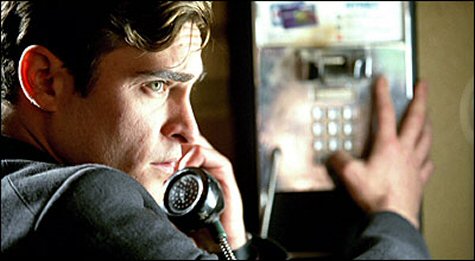
“It’s just a way for voters to make an easy call,” Oscar pulsetaker Pete Hammond said last week about the Blanchett vote. “She doesn’t have much [of a role], but she got Hepburn pretty well and it’s easy to see that and say, `Yeah, give her the award.”
I’ve said this too many times, but withholding the Oscar from the actress who really deserves it — Sideways‘ Virginia Madsen — seems close to appalling.
Especially when you consider what Blanchett reportedly said when she accepted a similar acting honor from the BAFTA Awards a little while back. She looked up from the podium, smiled and said to Hepburn’s ghost, “I’m sure you’re pleased you weren’t allowed to see this.”

Last week the word started getting around that the leading contender for next year’s Mimicry Oscar will be Joaquin Phoenix, for an allegedly dead-on portrayal of country singer Johnny Cash in James Mangold’s Walk The Line.
20th Century Fox’s decision to release this biopic on 11.18.05 is an obvious Oscar positioning move, and it won’t hurt that Cash’s legend has been on the ascent since his death in September ’03. A similar synergy helped Taylor Hackford’s Ray when it opened four and a half months after Charles’ death in June ’04….as cynical as that sounds.
Missing It
“I’m 15, and I saw Sideways before it opened and loved it every bit as much as you did. But I only have two friends who are around my age who liked it as much as I.
“Everyone else I’ve talked to has not had a positive reaction to the movie. ‘I didn’t understand why they were friends,’ one said. I told another to watch it again in a few years and he said, ‘If I don’t like it now why would I ever like it?’ Even
some adults, like my substitute teacher in English, thought that it was so unlikable and couldn’t muster up any sympathy towards the Paul Giamatti character.
I figured you’d be the best guy to ask why don’t more people of my age understand Sideways?” — Jeremy Fassler.
Wells to Fassler: I haven’t a clue as to why your English teacher found it unlikable, but he probably needs to get out more. That or Giamatti’s character reminded him of something in himself on some level, and he didn’t like thinking about that. Your friends not liking it is probably about life-experience issues. My 16 year-old son Jett says “several” of his friends liked it fine.
Policeman
“Like you, I was pleased to see The Laughing Policeman released on DVD. It marked the middle of three solid performance by Walter Matthau during the early 1970’s in hard-boiled crime dramas, coming between Charley Varrick (which I am boycotting on DVD until it is released in matted 1.85) and The Taking of Pelham One-Two-Three (which has been available for quite some time on a budget- priced DVD).
“Many serious actors would love to have three consecutive films like this on their resume, let alone a comic like Matthau. He acquitted himself well in all three, especially in Varrick, which called for a more well-rounded character.
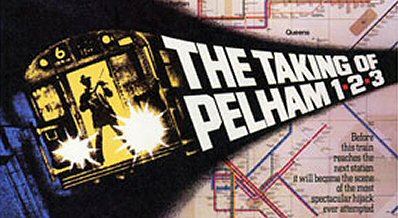
“Sadly, none of the films performed particularly well at the box office and they are all pretty well forgotten today save for buffs like ourselves.
“The DVD releases of Varrick and Policeman are about as bare-bones as it gets. For whatever reason, Matthau returned to doing what eventually became his Grumpy Old Man shtick after Pelham and never really returned to serious drama the rest of his life.
“While I am still upset at the shabby treatment given Charley Varrick on DVD, it is good to see these movies get some belated recognition.
“Another movie of this era which is long overdue for a DVD is Arthur Penn’s Night Moves with Gene Hackman — a film that qualifies for your list of genuinely depressing films.” — Steven R. Silver
Folks Night

A moment with Paul Reiser, writer-producer and co-star of The Thing About My Folks, at UCLA Wadsworth Theatre during discussion following screening — Monday, 2.21.05, 9:25 pm. Thanks to Reiser, producer reps Jeff Dowd and David Garber, and publicist Mickey Cottrell for helping to arrange the screening.
Why would a snarling Lionheart
Why would a snarling Lionheart like Hunter S. Thompson end it all with a bullet? I feel for his family, and especially the guy’s pain and sorrow, but how could anyone not reflect upon the equation of alcohol, guns and despair upon hearing the news? Obviously Dr. Gonzo didn’t pull the trigger out of a sense of ecstasy over things, but there was a special, thundering energy that pushed him up sheer craggy cliffs and over the top of many plateaus, and throwing that spirit away, even if only a remnant of it had survived at the end of his 67 years on the planet, was harsh and extreme and not the thing to do. Not for the author of Fear and Loathing in Las Vegas, which I used to carry around with me like a Bible. But then I didn’t get Ernest Hemingway’s suicide either, or Abbie Hoffman’s.
Hollywood Reporter columnist Anne Thompson,
Hollywood Reporter columnist Anne Thompson, writing under her old L.A. Weekly moniker of “Risky Business,” says that Vanity Fair cover girl Cate Blanchett “certainly…has an edge in the supporting actress category and should grab The Aviator’s one acting Oscar for her brilliant impersonation of Katharine Hepburn.” Whoa, whoa…hold up. Blanchett will win the Oscar because she does a good impersonation? Virginia Madsen’s straight-from-the-heart, soul-stirring performance in Sideways is going to lose out to Blanchett’s fluttery little Hepburn laugh (“Haaah…hahahaha!”) that everybody remembers from Bringing Up Baby and The Philadelphia Story?
We’ll Call You A couple
We’ll Call You
A couple of months ago I wrote a tough piece about my disappointment with Steven Soderbergh’s output over the last three or four years, and then Soderbergh let me have it at a Sundance party a few weeks later and I heard what he was saying (or feeling), so here’s something olive-branchy:
Unscripted, a half-hour HBO series that Soderbergh and his Section Eight partner George Clooney have exec produced (with Clooney directing now and then), is the best original thing I’ve seen on the tube in a long, long time.
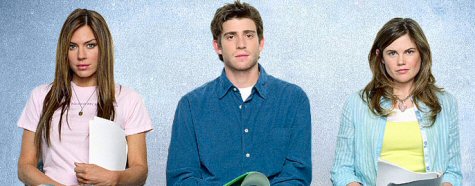
It’s mainly about three hard-luck actors more or less playing themselves (Krista Allen, Bryan Greenberg, Jennifer Hall) and dealing with the usual thespian woes — auditions, rejections, agent relations, more auditions, lost parts, occasional couplings, etc.
It feels honest, economical, “real”…and I say that knowing that it’s pretty easy to fake a reality atmosphere in any guise. It’s a concise and beautifully edited thing, there isn’t a false note in any aspect of it, and it’s pretty close to dazzling. K Street, the last Section Eight HBO show, was good but this is better.
< ?php include ('/home/hollyw9/public_html/wired'); ?>
I’ve only seen two of the ten episodes and there are only two more episodes to go…but there will be re-runs and a DVD box set later this year. It plays Sundays at 10 pm.
The great Frank Langella co-stars as a 60ish acting teacher, Goddard Fulton, who also gets kicked around and his face smudged. Nobody has it easy in this show. Things are tough all over.
“The truth of the matter is [that] less than five percent of [union actors] make all the money,” Clooney says on the show’s website. “And that’s just the people in the union. There are so many actors that get up every morning and — forget getting a job — they try to get an agent. Or an audition. We’re trying to show what it is that we do. It’s completely unlike the way it’s usually portrayed.”
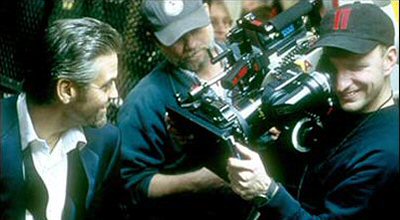
It’s been claimed that the show doesn’t use prepared dialogue, that it’s all improv and things like rehearsals, retakes or reshoots don’t figure. (I can believe this.) The series has allegedly been shot in “real offices” and during “real film productions,” with the actors sometimes crossing paths with “real-life Hollywood stars and directors”…as far as that goes, fine.
Clooney, Soderbergh and Grant Seslov are the executive producers of Unscripted. It’s produced by Michael Hissrich and Joanne Toll; the episodes have been directed by Clooney and co-exec producer Grant Heslov.
Episode #9 of Unscripted preems on Sunday, 2.20, with another airing the following night (i.e., Monday) at 9:30 pm on HBO2 and then Wednesday, 2.23 at 10 pm on regular HBO.
Looksee
Wandering movie journos who haven’t seen Paul Reiser and Raymond DeFelitta’s The Thing About My Folks have a shot at seeing it on Monday, 2.21, at my UCLA Sneak Preview class, which begins at 7pm at the Wadsworth.
RSVP to Sarah Rose Bergman at 310.572.1500 or write jeffdowdassist@aol.com.
If this invite isn’t ringing any bells, I wrote about this amiable little film in my February 8th column . Some distribs think it plays too old, but I’m convinced it’ll play big with the crowd that went to see My Big Fat Greek Wedding. I could be wrong, but I’m not.
Heart on Sleeve
All you have to do is click on this to see where Born Into Brothels is coming from.
It has a video-and-music reel showing Calcutta kids experiencing the joy of taking photos. Acquainting impoverished kids with photography and trying to save them from a squalid life of prostitution (or worse) is what the film’s co-director, Zana Briski, is up to in this unusual documentary. In short, activism rather than the usual impartial neutrality.
In the manner of a wildlife documentarian running out into an African plain to save a zebra from a pursuing lion, Briski (and her filmmaking partner Ross Kaufman — both pictured below) strive to save as many kids as they can from the certain spiritual death that comes to anyone who lives among squalor and prostitutes.

This Oscar-nominated film may have begun as an exploration of children growing up in Calcutta’s whore-house district, but it became a story about trying to get the Indian government and other potential benefactors to sponsor these kids in their education as photographers.
Briski faces tough challenges, not just from the government or the kids’ parents but, believe it or not, from Catholic nuns. In this light, Brothels is an expose of the complacency that keeps unlucky or disadvantaged people where they are, and blocks anything or anyone who might give them hope.
“I just respond to what’s around me, but I wanted to make a good film,” Briski told me a couple of weeks ago. “I didn’t want to be in the film but I became a catalyst.”
The need for education and opportunity among Calcutta’s poor “is enormous…the level of suffering is staggering,” she said. “And we were confronted with it every day. It’s overwhelming for anyone who tries to work in that place. Most of the women are using some form of birth control…and there’s a lot of ignorance. Women don’t know about their bodies.”
Born Into Brothels won the ’04 Sundance Film Festival Audience Award, and is favored (I think) to win the Best Documentary Feature Oscar.
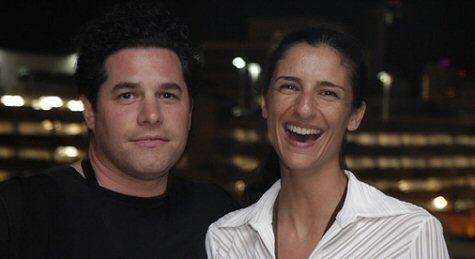
And yet Briski promised the people who helped her make the film (including the ones she interviewed) that she wouldn’t allow it to be shown in India, and she’s managed to prevent that so far. The mothers of the children portrayed in the film don’t want to be “stigmatized,” she says. Not allowing the film to be shown in India or even neighboring Pakistan is “my personal commitment,” says Briski.
When you make a promise you’d better keep it, but Brothels is full of hope and compassion and generosity, and pledging to keep this energy from being absorbed in India seems strange.
Two years ago Briski formed Kids With Cameras, a group that tries to continue the charitable efforts depicted in the film.
Go Ahead…Laugh
Even now, 31 years and five months after its theatrical debut, nobody seems to want to respect or even appreciate The Laughing Policeman. A lot of the reviews of the Fox Home Video DVD that came out two or three weeks ago have either been dismissive or ho-hummy. They should take another look.
I love this film for its gritty milieu and dinghy, matter-of-fact grimness. For me, its sullen attitude is a heavy turn-on. It’s not a great work, but I love that it doesn’t try very hard to “entertain.” It’s a film that says to its audience, “You don’t find what we’re showing you attractive or transporting? Gee, that’s too bad.”
The DVD doesn’t have any extras or voiceovers, but anyone with a taste for hardboiled noir should grab it.
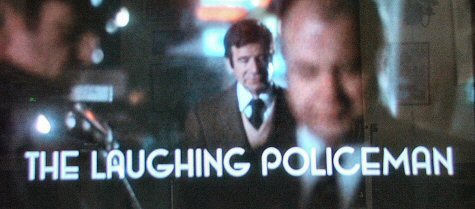
You wouldn’t want to call this a “hard-charging” cop flick — “laid back” would be more like it. And yet by today’s formulaic, semi-anemic standards it’s a genuine pleasure to watch a San Francisco policier that delights in atmosphere to this degree.
It’s not just the cops who seem cynical, miserable, bitter or numb — the innocent bystanders seem this way also. You can almost smell the self-loathing despair, the perspiration, the cigarette smoke and the acidic coffee.
Directed by Stuart Rosenberg and based on a Swedish crime novel, The Laughing Policeman is about an investigation into a mass murder on a San Francisco city bus. Ten or twelve people have been mowed down by some lunatic with a “grease gun,” and the cops don’t have a clue.
A squad of detectives is assigned to the case and Rosenberg acquaints us with some of them (Lou Gossett has the juiciest second-banana role), but the ones we mainly hang with are played by Walter Matthau and Bruce Dern.
Matthau (who was about 53 when it was made) turns in his usual rumpled and grumpy routine, but when Policeman hit screens in September `73 it was seen as a major change of pace. Matthau had been a big comedy guy throughout most of the `60s and early `70s (Plaza Suite, Hello Dolly, et. al.). As a cop lacking in basic people skills, Dern does his usual insinuating obnoxious thing.
One of the big plot points is that Matthau’s partner, a guy named Evans, is among the bus victims. Matthau talks to Evans’ girlfriend (Cathy Lee Crosby), and learns that he was spending his “off” time looking into the murder of a prostitute. He also finds out that Crosby posed for erotic photos, which half-offends him and half turns him on.
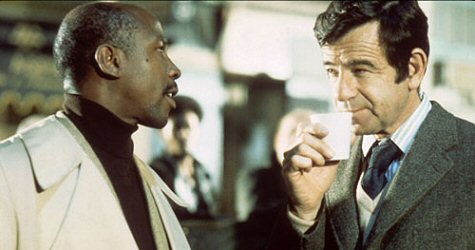
This dirty-pictures element has zip to do with finding the killer, but it adds to the general down-at-the-heels sleaziness. It also tells us that Matthau has a thing for Crosby.
A strain of homophobia pops through when Matthau and Dern start to train their sights on a wealthy gay guy as a possible suspect (the term “fruiter” is heard), but this was made only three years after Stonewall so I guess we can cut the filmmakers some slack.
I just love the way Rosenberg and his crew take their time in solving the murder. The movie seems to say, “We’ll get to it, we’ll get to it…in the meantime have a donut and relax and try paying attention to the other stuff.”
Down, Down, Down
“Anyone who doesn’t immediately nominate John Frankenheimer’s Seconds as the most depressing movie ever made — by some distance — is clearly someone who has never seen the film.
“By comparison, Million Dollar Baby is Singin’ in the Rain, Monster is Gigi and Midnight Cowboy is Seven Brides for Seven Brothers. Unlike those films, nobody in Seconds achieves anything resembling a fulfilling relationship, even momentarily. The entire story is dedicated to the proposition that hope is for fools, and that the most we can wish for is an empty illusion.
“Top it all off with James Wong Howe’s askew cinematography, Jerry Goldsmith’s unsettling score, and the heartbreaking sight of Rock Hudson finally giving a brilliant dramatic performance in a film nobody saw — and you have a film that
lingers in the back of your mind for years, like a bad, bad dream you really wish you never had.” — Jack Lechner, Radical Media.
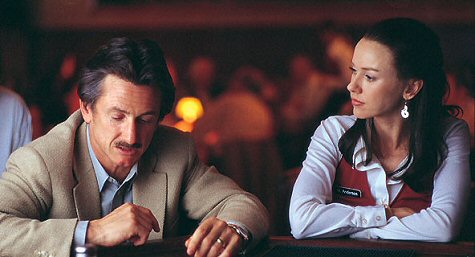
“When I read your downer movie article, the very first things that came to mind were two movies my high school film teacher Jay Kaplan showed back to back in the mid-70’s: The Heart Is A Lonely Hunter and Bang The Drum Slowly.
“Kaplan must have been some kind of masochist to inflict this on a bunch of 17 year-olds, but then again, not many happy endings in that classic era of 70’s films. For a bunch of geeky high school kids, these movies were like a one-two punch of depression. Imagine a bunch of high school seniors just sniffing away in the silence of the dark classroom.
“In the former movie, nobody saw the suicide scene coming, so when you heard Alan Arkin’s gun shots off-screen, the class was totally mortified instantaneously. Then that dissolve to his tombstone… that was killer. The class was a total wreck.
“At least with Bang The Drum Slowly, you found out the deal about halfway (‘My son is dyin’!’), but it was still a head-shaking bummer when good ol’ boy catcher Robert DeNiro did his Brian’s Song exit. My film teacher referred to the hospital parts as the infamous `shit deal scene.'” — Drew Kerr
“David Cronenberg’s Dead Ringers is an exquisitely sad film. Darren Aronofsky’s Requiem for a Dream made me feel like I’d been clocked between the eyes with a 2×4. Mike Nichols’ film Who’s Afraid of Virginia Woolf? still really stings, too. They’re therapeutic, though. True bummers are things like the new Star Wars films and Troy and Bad Boys II — black holes into which enormous amounts of money, talent and creativity disappear.” — Jason Comerford.
“Hurts…hurts so bad! Here are my All-time Downers: Pearl Harbor, Dying Young, St. Elmo’s Fire, Monsoon Wedding, All the Real Girls (I don’t care if you crib from the French or Terrence Malick….learn how to tell a tale), Beaches, Steel Magnolias, Man On Fire, The Perfect Storm.” — George Bolanis

“Most recently, I’ve heard people describe Million Dollar Baby as depressing, to which I say `huh?’ Sad, yes, but depressing? I could watch it over and over.
“For me, a good example of a really depressing movie is House of Sand and Fog. Depressing because, in my opinion, so many relatively intelligent people (like yourself) bought into this pretentious piece of excrement. It was so bad, and so well-liked by critics, that I had to call my entire way of judging films into question.
“Walking out of the theater, I asked my friend (a dim-witted soul but with an oddly good movie bullshit detector), `Was it just me, or was that a piece of shit?’ And he said `Yeah, it was.'” Mark Van Hook, Boston, Mass.
“A triple bill that would have you going for the Prozac: (1) Ironweed — just beats you down…unrelenting on every level. (2) Interiors — not even good drugs help with this one. (3) Kanal — a very difficult and fatalistic vision that grinds a viewer’s sensibilities to a pulp.” — Benjamin Moore
“The Pledge. God almighty, that movie was depressing! Great cast, but oppressive and slow storyline with a downer of an ending.” — Craig Finnerty.
“Here’s your winner, hands down: Gaspar Noe’s Irreversible. Although it aspires to a fleeting moment of hope at the end (beginning), it’s about as dark and bleak a view of humanity as you’ll ever see on celluloid, with nothing remotely redemptive about it.” — Eponymous.
“Recent all-time depress-o-ganza: The Assassination of Richard Nixon. I personally adored the film, and was shocked at the critical indifference it received — it’s the most profound and acute trapped-in-the-mind-of-a-madman head trip since Taxi Driver.
“But when the relentlessness finally abated and the lights went up, I turned to my buddy — who is of the unshakable belief that there are no depressing films, only bad ones — and croaked, `That was pretty goddamn depressing.’ You know what? He agreed — he was shaken. And we talked about the thing for the next couple of hours; neither of us could get it off our minds. If that’s what a genuinely depressing film can do, then I’d argue it’s worth the tough two-hour sit.” — Tim Merrill.
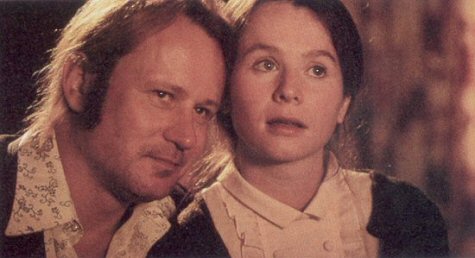
“I’m picky enough to avoid most of the stinkers, but I would have to nominate Purple Rain and Moment by Moment as the two most depressing films I’ve ever seen — not because of their subject matter, but because they were so boring and a waste of my time here on earth.” — Heidi Bortner.
“You clued me into one in a much earlier column — Breaking the Waves. Before Lars von Trier became a total sadist. A movie that was sold as uplifting but was not, in any sense of the word, is Muriel’s Wedding. Though I do admire the hell out of Toni Collette. I saw Blow Up when I was 20, and at that age I thought it was completely depressing. And confusing. Natural Born Killers did not edify me in any way.” — Doug Helmreich
“House of Sand and Fog…bummer! The movie throughout was taxing in its morbidness and depression … but the ending with the (spoiler) son getting killed …now, that’s what I call bleak! For the life of me, I can’t see how anyone can own this film on dvd except for the people who either acted in it or worked behind the scenes (so that they can show their friends … ‘Hey, look, that’s me in the end credits!).” — Ron Koffler
“Dancer in the Dark was, for me, the most depressing movie of all time! A punch in the stomach from beginning to end. I have terrible flashbacks even now while listening to muzak for `My Favorite Things’ at the local supermarket.” — Amy Shemaitis.
“No matter how good it might have been on its merits, Monster was so goddamn depressing that I’d never watch it again. Sure, Charlize Theron is brilliant, but I can’t handle that much despair! I felt the same way about Mystic River, House of Sand and Fog and Leaving Las Vegas. It’s not like I’m some low-brow Neanderthal, either. There’s a good depressing like Million Dollar Baby. The problem is that some films are just so bleak that they don’t make for good re-visiting.
“As for so-bad-it’s-depressing, what about Life or Something Like It? That film was a real kick in the balls. I went to the bathroom three times in 90 minutes just so I could have some relief. Unfortunately, I couldn’t walk out because my wife wanted to stay. — Andrew Hager, Cockeysville, MD.
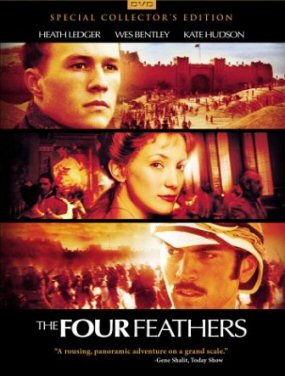
“My favorite bummers: Five Easy Pieces, The Last Detail, Last Tango in Paris, Boys Don’t Cry, Kids, Million Dollar Baby, Elephant, Raging Bull, Grey Gardens.
“Most of these are obvious choices, but they were the first ones that popped into my head. All of them, for me, have a profound undercurrent of sadness/pain running through. They have moments of naked truth that are electrifying art, almost too stark to embrace: Brando cursing at his dead wife’s corpse, the final shot of Million Dollar Baby, the two sailors walking out of the military prison into the harsh cold morning.” — Mark Smith, PhD
I’ve tried my best to just stay away from ‘depressing’ movies. There are plenty of `sad’ movies I love (Mystic River, On the Beach, The Mission, Fail-Safe come to mind). As for those who think all sad movies are depressing…well, what are you going to do? One friend of mine pretty much hates anything that has a sad ending. (One of his favorite movies is Zorro the Gay Blade, if that gives you any idea). People with tastes like that will always be around and they’re not leaving anytime soon. So why complain?
“I’ve always been interested in watching the Oscars, even though some of their Best Picture choices have been, well, wrong. But that’s all I’m interested in; I couldn’t care less about the other awards. Golden Globes, People’s Choice, MTV, CNN, Newark Critics Circle, whatever, they’re all the same. The Oscars are the big show. Who wants a People’s Choice Award or a Golden Globe?– Aaron Mastriani, El Paso, Texas.
“The recent remake of The Four Feathers is a downer. An expensive adventure movie filled with people who can’t act and all look as if they can’t wait to get back to the hotel pool in Morocco. Kate Hudson’s clearly been watching her mother’s old Laugh-In tapes for the vapid aura, and Heath Ledger’s perfected his pout. But together they have so little idea of how to create romantic tension over issues of moral commitment, and were plainly so badly directed in search of such displays, that the movie just lies there and melts. ” — Richard Szathmary
Nicole vs. Dissers
“Regarding Little Miss Brown-Shirt Nicole: I’ll bet you money that she never even saw the movies she listed as “left-wing” (Frida, Motorcycle Diaries, etc.). Please relate to Nicole that the next time she has left-wing propaganda shoved down her throat, to please do us all a favor and choke to death on it.” — Heidi Bortner.
Nicole to Heidi: “You can rest assured at night that I have seen both Frida and The Motorcycle Diaries . I have also seen Reds, The Cradle Will Rock, Guilty by Suspicion, et. al. What I have yet to see is a serious exploration of the true horror and damage that communism has caused around the world over the past 100 years.
“Most rational people know that Che was not a nice man but when I find my future brother-in-law (a 25 year-old actor…ughhh) to be seeing The Motorcycle Diaries and then claiming that communism has got a bum rap and I’m just brainwashed by the hard right-wing establishment into thinking it’s wrong, I wonder if our institutions of higher learning and our entertainment industry may be sending a skewed message.
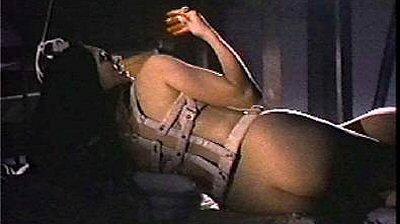
“As for your comment that I should choke to death on the left-wing propaganda the next time…well, the tolerance and love you show in that comment makes me realize that my experiences at film school were most likely shared by many more people than myself. What school did you attend by the way?”
“I just want to say that I echo the sentiments by Nicole. Lefties can be some of the most close-minded, uninformed people I’ve come across. It’s definitely on both sides. I totally agree with her assessment of the kind of films we’ve been force-fed over the years. As a filmmaker myself, I hope to change that, at least in a small way.
“The reasons people don’t care about the film industry as much anymore is because there is such an absence of truth. Even when they do try to say something, they wind up saying things that they want to be true, not things that are actually true. But what can you say? It’s a microcosm of the world we live in. The blind leading the blind. Truth will always resonate with people. Until you see more of that on screen, people will continue not to care. ” — Dan Lowman
Nicole to Dan: Seems like you and I had similar film school experiences. I mentioned before that I had a discussion with an older very leftie reporter friend. I find older leftists much more tolerant because they have lived a life and made choices. Younger student activist types not so much. They don’t know why they believe what they believe, only what to believe and feel vindicated because they see their world view so prominently displayed so much through pop culture and the film industry.
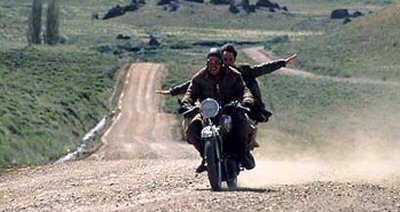
“I believe every story has a right to be told but there seems to be a lack of a search for truth in modern day filmmakers. They are more interested in following ideology than showing both sides. I don’t need any more films showing how repressed the 50’s were. Sure films were unrealistic then to some degree in their portrayal of sexuality but are today’s films any different?
“I’ve seen black gangs, white gangs, Asian gangs and Latino gangs in real life but I’ve never seen a multi-racial gang like presented in most Hollywood films. Modern Hollywood film gangs look like a Baskin Robbins store. Is this any different than the Lucille Ball/Desi Arnaz days of each sleeping in different beds? I don’t think so. Different cultures have diferent taboos. Our artistic taboos are just now on the left instead of the right. No religion, no race, no sex inside of marriage unless it is with leather or boredom. This is no more a reflection of our world than that depicted in Pleasantville.
Stuntmen
“I agree about cookie-cutter car chases and fights. I’m a film director — Bang the Drum Slowly, Weeds, Prancer, Let’s Scare Jessica to Death — and have always had great difficulty getting stunt coordinators to do something fresh. In fact I’ve found it almost impossible. I’ve come to feel I’d be better off without them, just stage the stuff as best I could with the actors. But you can’t get proper insurance without them.
“On the other hand, in terms of awards, I think you’re wrong about stunts never adding anything thematic. Think of the fights in The Sopranos, for example, or Olivier’s codger struggle up and down basement stairs with Peck in The Boys From Brazil, or the two brothers on the beach in Big Night. They’re all off the money and awkward. Hard to get stunt coordinators to do that. — John Hancock.
“How could a nod to stuntmen devalue an award show that is already nothing more than a popularity contest? If these awards were still about the value of a performance then Paul Giamatti would have been nominated for lead actor.” — Rob Jeffers .
Heat Letdown
Regarding your deserved rant against the extra ‘scenes’ on the new WHV double-disc Heat, perhaps DVD producers should all go back to Film 101 and remember to differentiate between ‘scenes,’ ‘sequences’ and ‘shots.’
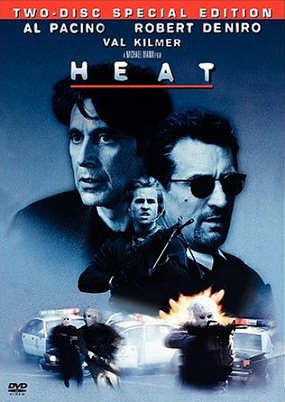
“I too am tired of being promised ‘extras’ only to find the ‘extras’ are just a foot or two of film someone found on the editing room floor.” — Susan Burchfield, Research Director, KTVI FOX 2, St. Louis, MO.
It’s hard to tell if
It’s hard to tell if Gold Derby.com’s Tom O’Neill caved on his support of Martin Scorsese’s The Aviator two weeks ago or just a day or two ago, but in any case he’s finally folded his tent and admitted that Clint Eastwood’s Million Dollar Baby is the more likely Best Picture Oscar winner. The Gold Derby team (Anne Thompson, Dave Karger, Pete Hammond, Gene Seymour, Thelma Adams, et. al.) is giving Clint’s film 4-to-5 odds to win. I called it for M$B over two months ago (“Game Over”), but I guess I don’t need to point that out.
As long as we’re doing
As long as we’re doing turnarounds, allow me to offer one of my own (although it’s way too late in the game for it to mean anything): Clint Eastwood delivered a finer thing with M$B than Scorsese did with The Aviator, but it would be really nice all around if Scorsese were to win the Best Director Oscar. I just watched those making-of docs by Laurent Bouzerau on the new two-disc Raging Bull DVD, and even though Scorsese has been off his game for the last decade or so, the greatness of who he once was should be wholeheartedly acknowledged. He was a spellbinding director and (let’s hope and wish and cross our fingers) may be once again.
Those one-sheets and web ads
Those one-sheets and web ads announcing Gore Verbinski’s The Weather Man (Paramount) as an April 1st release are now officially redundant . The Nic Cage/Michael Caine/Hope Davis drama about a Chicago TV weather man with personal problems galore has been bumped to the fall. The idea, apparently, is that a strong drama with prestige elements will have a better shot in September or October. There’s also some new thought being given to the Weather Man ad campaign image (i.e., Cage with a splattered milk shake dripping from his left shoulder), which obviously suggests comedy.
A Warner Home Video press
A Warner Home Video press release issued a couple of months ago about the upcoming double-disc “special edition” Heat DVD said that disc #2 would offer “11 additional scenes.” Bunk. These “11 additional scenes” amount to less than 10 minutes of deleted footage, and while there’s one scene that lasts a little over two minutes, most of the “additional scenes” are snippets lasting 30 or 40 seconds. A snippet is like a phrase or a sentence, and a scene is like a paragraph. Warner Home Video’s p.r. department should know the difference, and it shouldn’t sell one as being synonymous with the other.
